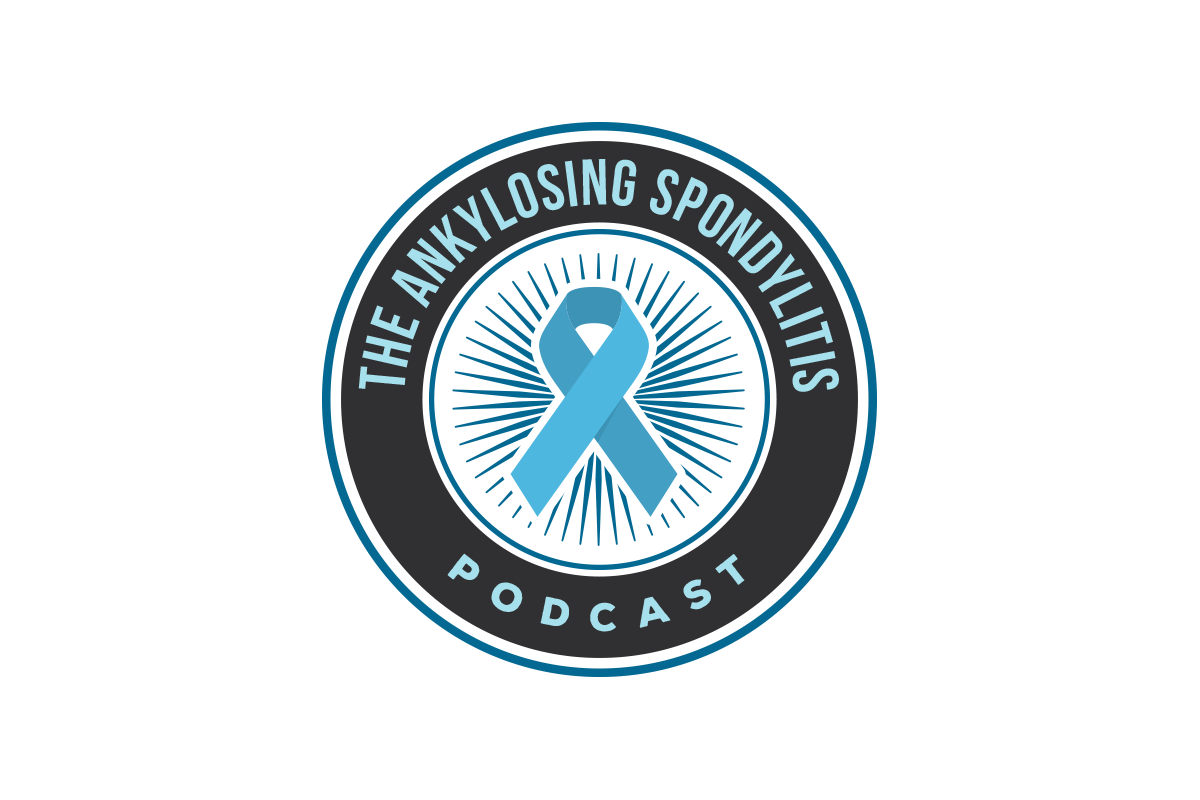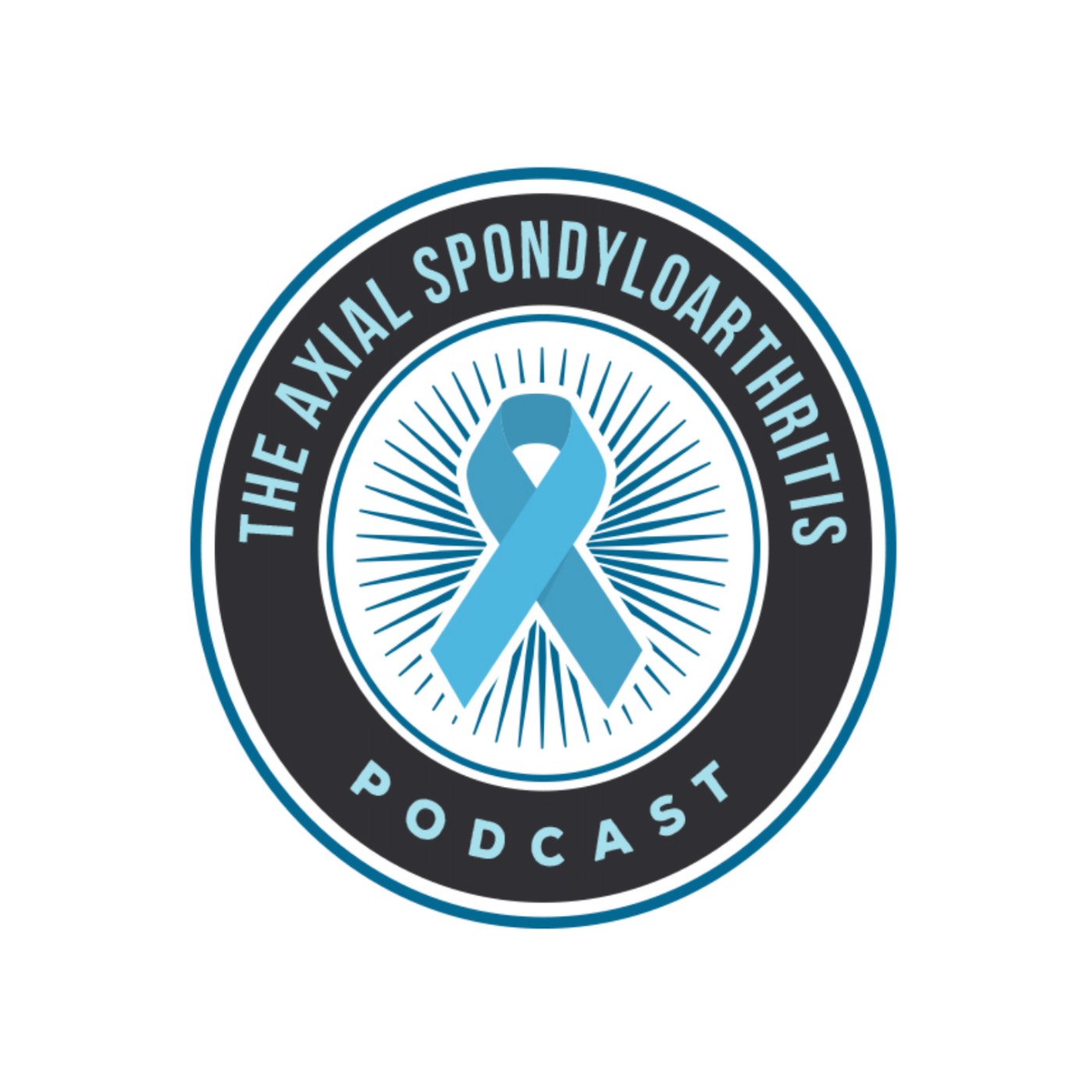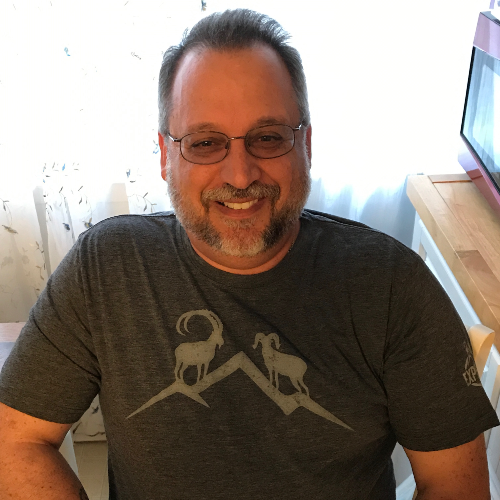Episode 34
Basics of Medical Marijuana
Hello, and welcome to this episode of The Ankylosing Spondylitis Podcast. I know I've said it before, but I've got to say it again. We've hit over 12,000 downloads across the world with this show. If it wasn't for all you listeners, none of this would be possible. I love hearing from everybody. It has been just amazing to hear everybody's stories of how they have dealt with AS, and I wanted to point out I got an email the other day from a listener. And this one was really cool and it's reads;
“Hey, oh my goodness. I'm so thankful I found your podcast. Thank you. I'm in Namibia and for so long. I have felt so alone. I felt so many times that people think I'm making it all up. It's crazy and my doctors in South Africa because there isn't even a rheumy here. People don't understand. Anyways, listening now to Loss of Our Old Life and I can so relate. I'm so sorry for all you have gone through. I lost an eye and then also had cancer. Like so many of us losing so much and yes mentally it’s such a hard battle. Thank you for raising awareness!!!
Thank you! Without listeners like you, I wouldn't be doing this. I started this off just to kind of bring out what my experiences were. But now, it's grown into so much more as I get to hear from everybody from all these countries around the world. There's like 195 or 192 countries in the world and we have had downloads from at least 71 of them. Means over a third of the countries has had somebody access the show and at least listened to it once. That's amazing to me. So and it's again, it's all because of you guys, all of us who have Ankylosing Spondylitis, and the caregivers of people that have Ankylosing Spondylitis. I absolutely thank you from the bottom of my heart for all you've done to help make this show so successful.
And now, under this week's Question of the Week, as I was going through Facebook forums, I noticed a question that said, “Do you feel that you're using your Ankylosing Spondylitis to be a victim or have a victim mentality?” So I kind of read that a couple times, and this is going to be completely my feelings on this, but I got a little bit angry because I've been dealing with this for so long. Let me preface that by saying, my feelings are not your feelings, we're all going to have this differently. But I thought about it. I said, I didn't ever want to be a victim, to appear to be a victim. Even after multiple hip replacements, fused back, fused SI joints, fused neck, there was plenty to say poor me, but I really have wanted to spend my life trying to find the good side. Now, yes, all the damage AS has done to my body is not good. But the good side of it is I've met some phenomenal people and all of you across the world who share AS with me, and that is something that I can talk to any of you and we're all going to have similar experiences and be able to, in many ways empathize with each other, consoling each other.
So I saw this article, there's an author, Lisa Marie Basile, (see link at end). And in early January of 2020, you know, just this month, she wrote an article; it's titled, As a New Year Begins, I'm Seeking the Silver Lining with AS, and I thought what a great title. In the article, she goes on to discuss what she's dealt with in her life, and how it's adjusted her viewpoints on different things. She had a challenging childhood and she says, “I found strength and resiliency instead of weakness and fear”. And that's really what I want everybody to try and take away from this. If you go through the pain of Ankylosing Spondylitis, the challenges that we deal with having Ankylosing Spondylitis the day to day just activities, trying to get them done, raise kids, you know, work a job, all of it with Ankylosing Spondylitis, that instills in you a strength and resiliency that many others do. Have, they may look fine on the outside, they may be capable and quote unquote, normal people that are able to do anything that they want to do, whether it be in the gym or you know in life, but I'll bet you they don't have that strength and resiliency that you do, and remember to take that away. I want you to read this article by Lisa, that you are filled with empathy, compassion, and understanding for people that others just will never understand. And so take that strength you have internally take that resilience you have and use it to your advantage and rise up and don't let as take control of you. Remember, I am not Ankylosing Spondylitis, but instead, I have Ankylosing Spondylitis, it does not have me.
So in this week's episode, I wanted to look at medical marijuana and the use for Ankylosing Spondylitis. As I was looking around the website a little bit, I went to ankylosingspondylitis.net, which has just a great amount of resources for people with Ankylosing Spondylitis and they had a really good article on medical marijuana for Ankylosing Spondylitis as we know, medical marijuana, recreational marijuana, you know, it all comes from the cannabis plant. The cannabis plant itself has been used for thousands of years and for all sorts of different treatments of all sorts of different ailments. Obviously, for recreational purposes to get high. Well, recreational is generally illegal in many spots, United States, many states, including where I'm at in Michigan, is making it legal. And it's now illegal to use recreational weed even though at the federal level, it's still an illegal drug and possession could land potentially in jail. So as you go about and decide whether you want to try medical marijuana or not, you have to look at what your state laws are. Will you be violating state laws? Are you comfortable if it requires violating state laws doing that for potential benefits of feeling better. It's really what it boils down to. And then if it's illegal in your state, you find it beneficial. You find it helpful, and it's illegal at either the recreational medical level, then you might want to consider working with legislation and voting to legalize it at the state level, the more states that pass it, eventually the federal government's got to look and say, Hey, we can't just keep this at a a legal level and all the states are saying, forget you, we're going to do what we want to do.
So what are the active ingredients in medical marijuana?
The active compounds in the cannabis plant are called cannabinoids. There are dozens of cannabinoids in the cannabis plant. The two well known ones that everybody relates to and talks about our THC and CBD, cannabis oil and deltaninetetrahydrocannabinol say that, you know, 10 times real fast. So THC has been associated with reduction of nausea and pain, increased appetite and psychological effects like euphoria, altered sensory perception, you know, which can give you that high effect make you feel high. On the other hand, CBD does not produce any intoxicating effects. It has more a sedative effect on some people, and that's what can help to reduce the pain and possible inflammation.
So how does medical marijuana work in the body?
Well, scientists have discovered that the human body has an endocannabinoid system ECS or within the body. This system is distributed throughout the body and it plays a part in how we regulate our body ,I should say regulates functions like pain, immunity, inflammation, you know, even things like bone health. So the ECS is comprised of the cannabinoids that the body produces the receptors on which they act and the enzymes that are involved when you introduce THC and CBD. To these they have similar structures to those internal cannabinoids and they work on the same receptors they work to modify how those are each feeling which gives you your your fork feeling, reduction of pain and so forth.
What research has been done on medical marijuana?
Well, several studies have been done on medical marijuana for different conditions. You know, there's a lack of high quality research. And it's really, probably over just the last few years that we've seen any real idea put in to generating good research on what medical marijuana can do for you besides just anecdotal information. There's also different perspectives, whether they be religious based or nature based, whatever, that can inhibit some of these studies, so there's still a long way to go. But there is something that appears to be in THC and CBD that can help different patients. More research is needed to fully understand the potential risks and the benefits of cannabis and to understand how it may or may not be helpful to people with arthritis. like AS.
What are the side effects of medical marijuana? Well, everybody's going to be different like any medication. Again, I'm not a doctor, this is not a recommendation for you to use medical or recreational marijuana. It's just trying to get some of the information out there so that you can have that discussion with your doctor, he or she is going to be the one that is best able to walk you through some of the items you might need to know about this. So some common side effects that have been seen in various research studies of medical marijuana include dizziness, drowsiness, feeling faint or lightheaded, fatigue, headache, impaired memory, and disturbances and attention concentration thinking and decision-making. And that doesn't mean you're going to get any of these. So just know that those have just been some things have been seen, but you may get some you may get none. Again, more research is needed to understand the long-term safety of medical marijuana. What we as humans can expect out of it. There are also some people that should not use medical marijuana, including those that are allergic to cannabis and those who have or high risk of schizophrenia, or other psychotic illnesses. I'm going to have links to this article and its references so that you can look into that more.
The other thing I wanted to touch base on when we're talking about possible side effects is is marijuana addictive? You know, that's really still out there. There was a article at the National Institute of Drug Abuse on marijuana and it's addictiveness, you'll hear people on a lot of people say that marijuana is not addictive. You'll hear others say, Oh, I was addicted to it. I was addicted to it. Well, I think both of those are probably wrong to a certain degree. And this article really summed up kind of my thought process on it. They find that a very, very small amount of people may become addicted to marijuana far smaller than the number of people out there that say that they were addicted to it. What in reality most of these people have is what is called a marijuana use disorder and that is akin to a dependency on it. Now dependency and addiction are two separate things. Addiction, like many know, whether it be alcohol or harder drugs is very, very difficult to walk away from very, very difficult to end a dependency. In most cases, they found people with dependencies could walk away and be cleared out of their system and in a week and a half, two weeks, so there's a big difference there in what a dependency is, versus an addiction. And again, I'm going to go back to that as we go through it. People who use marijuana frequently often reported irritability, mood, sleep difficulties, decreased appetite, cravings, restlessness, and other various forms of physical discomfort that peak within the first week after quitting, and then last for up to two weeks after they've quit. Marijuana dependency occurs when the brain adapts to a large amount of the drug by reducing production You have insensitivity to its own Endocannabinoid neural transmitters. So again, to say that you're adicted means that you would have smoked just godly amounts of marijuana or ingested through edibles or whichever form you were taking it far more than the average person. If you've taken it for a while, and you like that feeling, and it helped you to function during the day, and you felt that you would not be able to quit, that's a dependency that's not an addiction. So this article points it out very succinctly. And shows that really looks to be around 9% or less of people become addicted to marijuana, which is a very low number. So you don't want to say well, 9% of people become become addicted. The other 81% that can handle it and and do it well, should be ignored and so it should be made illegal. I'll have a link to this article. But again, it's dealing with dependency versus addiction, two different things. The third thing is this article was published a few years ago. And it points out in an additional piece to it, that potency of marijuana is increasing; it's no longer the same stuff that we would get in the 80s and 90s. As potency rises, these numbers are subject to change a little bit, it's still gonna take a lot more research to see where that goes.
And then finally, what are the different preparations of medical marijuana?
How can you use it as a patient and I covered some of this, it's very similar to what I talked about in the prior issue on CBD oil. Medical Marijuana comes in a variety of forms, including inhaled oral and topical preparations. Smoking marijuana may have many of the same cancer causing chemicals as tobacco smoke and inhalation by vaporisation is another option. Oral ingestion of medical marijuana is available and edibles like candies or other sweets, cannabis oil and drops are delivered under the tongue. And finally, topical applications are available in ointments and gels, which can be smeared on the skin. As with any complimentary therapy, you want to talk to your doctor, before trying this, your doctor is going to be the best person to tell you what is the proper way to take medical marijuana, what is the best way for you to use it so that it doesn't interact with any of your other medications. So again, I encourage you all to talk to your doctors. If you have any curiosity about it read this article and full look at some of the references that are there and, and good luck in your endeavors to decide if medical marijuana is right for you. Whether that helps with your pain, whether it be just CBD oil that helps with you, once you found what works for you. It'll hopefully help you long term and, you know, I really wish you the best of luck as you go forward with that. Thanks. And I hope everybody has a wonderful, wonderful day and I look forward to talking to you all in the future.
Lisa Marie Basile article: https://ankylosingspondylitisnews.com/2020/01/15/new-year-pain-fatigue-positive-mindset/
https://ankylosingspondylitis.net/medical-marijuana/
https://www.drugabuse.gov/publications/research-reports/marijuana/marijuana-addictive


